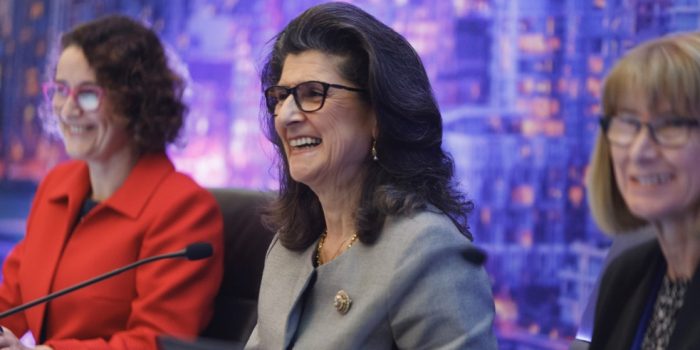If you sum up the year, how has it gone?
A year goes quickly. Within ILAC we have some major internal issues to deal with, including work on reorganisation to streamline decision-making processes, but also to have better contact with the various stakeholders in the market who benefit from our work. We are also working on rewriting the legal basis of the organisation.
In addition, we also have a good relationship with the WTO and the UN’s various bodies within our area. And we have started talking about the changes in the market which we serve, in terms of business models and new technology, such as digitalisation.
How did you become Chair of ILAC?
I have held elected positions in ILAC since 2002. I was Vice Chair for six years before I became Chair and I was therefore expected to assume responsibility as chair.
Swedac as an organisation and myself as a person have enjoyed high levels of trust over the years for our efforts and our ability to take the lead in questions of principle. There is also respect for Sweden’s attitude towards developing countries and the tolerance traditionally characterised by Swedish society. Everything taken together naturally contributes to the acceptance of a Swedish candidate.
Is the role as Chair of ILAC challenging? If so, what are the challenges?
Yes, it demands that you listen to all opinions, understand the driving forces behind them and are able to see the common denominators so that you can suggest solutions that everyone can live with. I’m not Sweden or Swedac, or even Europe in this context, but the cohesive Chair for all members.
Chairpersonship requires impartiality and independence as well as integrity and humility. Humility in that I’m not better or more important than others, but the one who has promised to speak for everyone and not take sides for any individual point of view or interest.
What is the most important lesson you’ve learned so far?
If you dig deep enough, there is always a political or demographic agenda, such as the legal framework governing member activity or the overall economical objective. Another important lesson is that what people say is not necessarily what they are really worried about or what they are trying to say. You have to ask additional questions to understand the problem. As in all relationships, communication and mutual respect are of utmost importance.
In what way do ILAC’s challenges differ from those of Swedac?
Swedac is an authority with designated laws and regulations within a designated national framework. The management can and must point out the direction we should follow. ILAC is a member organisation. The foundation is consensus and democratic processes. Strategies and orientations must be acceptable to all members who, in turn, may have very different legal conditions, problems at hand, political preferences and market structures. You must therefore work hard to reach agreement in negotiations.
How do you view your role, your ambitions with ILAC and the future?
I want my successors to inherit a new organisation that is responsive to market needs in a more effective way. An organisation that actively listens to the needs of the market and shows the willingness and ability to accept and implement change. In light of the evermore rapid technological changes, we must be prepared to develop the services we offer and the way in which we deliver them. I would also like us to start work on establishing a single global organisation to coordinate accreditation bodies.
Anything else you would like to add?
If we are not prepared to develop our services to meet the changes in terms of business models and technology in pace with the market we serve, we will cease to be relevant in 5-10 years’ time. Listen to the users, the market and embrace change! That’s my closing message.

